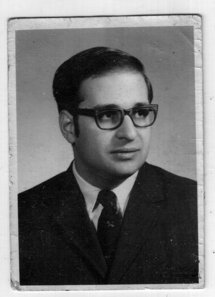I can furnish certain exact phrases, even sentences, from what Dr. Tenley said, because for weeks afterward, at times chose my no logic I could ever figure out, odd bits would play back. Finally I wrote down what I was hearing, and they ceased coming.
“David is afflicted with a tumor about the size of a pea, located on the pineal gland [sketching rapidly on the chalkboard], which is …”
“The paralysis and vision-blurring he experienced were due to the pressure exerted on the brain by the growing tumor, pus fluid which has been building up in the area. We have drained the fluid and removed the pressure for the moment …”
“… whether there is a high degree of malignancy. Quite possibly it may prove to be benign. However …”
“… inserted a tube which will ease the pressure by allowing the fluid to drain. This is, however, only a staying process.”
“Due to the position of the tumor, it is inoperable [inoperable, inoperable, inoperable] and must eventually prove terminal.” (Memory says that this statement was followed by a long blank silence, but I don’t think it was, really.)
“It could be two days, or two years, or possibly longer, but the tumor must eventually grow to the point that it will fatally affect the operation of the brain …”
“The tube which we have inserted to drain the fluid and thus to relieve the pressure on the brain will give David some time. He will probably walk out of the hospital in two or three weeks. But I must caution you against any sort of optimism. There is no hope of ultimate recovery….”
And that was that. The efficient, impersonal doctor (so he seemed to me) said, “I am very sorry,” the first and only crack in the professional façade that we were allowed to see. Mrs. Schlachter was crying, silent devastated tears. The rest of us were stony-faced. Dennis met my eyes once and then we each looked somewhere else. I realized that my teeth were clenched. David was going to die? Like hell he was!
Somebody would have to tell the house, and Dennis didn’t want to be the one. I decided it might as well be me. I thought I could get through it okay. But I was supposed to go to work at four, and it was already nearly 3:30. I called the house and told one of the brothers that I was calling a special house meeting in half an hour and asked him to post a notice on the bulletin board and otherwise pass the word. I called Mr. Berkeley, the store manager, and told him I’d be an hour late to work and I’d tell him why when I got there. Then we left the hospital, and I wondered if the Schlachters were sorry or relieved to be by themselves awhile. I could feel the pain it gave them, seeing ordinary life going on around them.
Ordinary life going on. Walking down G Street, we found ourselves in the middle of crowds of students changing classes. It was hard to realize that for them it had been just a normal Monday. It was still considerably less than 24 hours since we had returned from the Jersey shore.
Ordinarily I would have no business calling a house meeting, not being one of the officers, but the brothers knew it had to concern Dave’s operation. When I walked into the house, .it looked like a real house meeting, only quieter. Every seat was taken, and several brothers were sitting on the floor or leaning on the wall around the entryway.
I thought it would be easy, and at first it was. I used my tough-guy, man-of-the-world voice, my great stone face. I told them I’d make it short.
“You know they operated on Dave today. It was a success in one sense: They removed the pressure and that removed the paralysis. But he has a tumor, a damned little thing the size of a green pea, they say, and it’s in a place they can’t get at. So, they can’t take it out.”
The brothers were silent.
“The doctor said it could start growing again at any time, and when it does” (I paused to steady my voice) “he’s dead. A couple of days, a couple of months, a couple of years. And there isn’t anything anybody can do about it.” Sudden tears, unexpected, blinding me. I walked out of the room, ashamed to let them see me cry.
Fortunately, we all had immediate problems to tend to. The Schlachters needed to rent a place nearer the hospital, and Dale and Bill offered to help them find it. Dennis and I would concentrate on getting Dave graduated. He’d take three of Dave’s professors and I would take the other two, professors I had had classes with.
